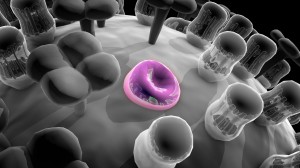Q: I chose not to get the flu shot this year because I’ve been staying away from crowds and wearing a mask while shopping.I figured if I got the flu, I could ask my doctor for a flu pill.Unfortunately, I can’t remember the name.What is the infection rate this year?
A. According to the Centers for Disease Control and Prevention, this year’s flu activity is below “baseline.”Last year, there was almost no flu.This may be the result of measures people are taking to avoid COVID-19.

Two oral antivirals for influenza are oseltamivir (Tamiflu) and baloxavir (Xofluza).Both are effective against this year’s flu strains, the CDC reports.Taken shortly after symptoms begin, each can shorten the duration of the flu by about a day or two.
Q. Has there been any research on the safety of taking calcium for reflux?I take at least four 500 mg regular tablets a day for my GERD.These control heartburn.
Usually, I take two at bedtime so I don’t wake up with abdominal pain.I’ve been doing this for years because I don’t want to take a drug like Nexium.Will I regret it?
A. The calcium carbonate you take is intended to provide short-term relief from symptoms.Each 500 mg tablet provides 200 mg of elemental calcium, so four tablets provide approximately 800 mg per day.This is within the recommended dietary intake range of 1,000 mg for adult men under the age of 70.The recommended daily intake for women over 50 and men over 70 is 1,200 mg; in order to get that much, most people need some form of supplementation.
What we don’t know is the long-term safety of calcium supplementation.A meta-analysis of 13 double-blind, placebo-controlled trials found that women taking calcium supplements were 15% more likely to develop cardiovascular disease (Nutrients, 26 Jan 2021).
A study published in the journal Gut (March 1, 2018) reports a link between calcium plus vitamin D supplements and precancerous colon polyps.Volunteers in this controlled trial were given 1,200 mg of elemental calcium and 1,000 IU of vitamin D3.This complication takes 6 to 10 years to appear.
You may want to consider some other strategies for controlling heartburn.You’ll find plenty of options in our e-Guide to Overcoming Digestive Disorders.It’s under the Health eGuides tab on peoplespharmacy.com.
Q: Your article on lipoprotein a or Lp(a) probably saved my life.All four grandparents and both parents had heart attacks or strokes.I’ve never heard of Lp(a) and now I know it’s an important risk factor for blocked arteries.
In Robert Kowalski’s 2002 book The New 8-Week Cholesterol Therapy, he cites numerous studies in which SR (sustained release) niacin reduces Lp(a).I have already started taking it.My husband has been taking niacin under medical supervision for years.
A. Lp(a) is a serious genetic risk factor for heart disease and stroke.Cardiologists have known for nearly 60 years that this blood lipid can be as dangerous as LDL cholesterol.
Niacin is one of the few drugs that can lower Lp(a).Statins may actually increase this risk factor (European Heart Journal, 21 June 2020).
A traditional “heart-healthy” low-fat diet does not alter Lp(a) levels.However, new research suggests that a low-carb diet can reduce this worrying risk factor (American Journal of Clinical Nutrition, January).
In their column, Joe and Teresa Graedon respond to letters from readers.Write to them at King Features, 628 Virginia Drive, Orlando, FL 32803, or email them through their website, peoplespharmacy.com.They are the authors of “Top Mistakes Doctors Make and How to Avoid Them.”
Give The Spokesman-Review’s Northwest Passages Community Forum Series directly by using the simple options below – this helps offset the cost of several reporter and editor positions at the newspaper.Gifts processed in this system are not tax deductible, but are primarily used to help meet local financial requirements required to obtain state matching grant funds.
© Copyright 2022, Speaker Comments|Community Guidelines|Terms of Service|Privacy Policy|Copyright Policy
Post time: Mar-10-2022





